Battle of the physical sciences
From left to right Advanced Placement (AP)/International Baccalaureate (IB) Chemistry students junior Isaiah Chappell, senior Denise Wu, senior Tannya Meza, and junior Sofia Barbabosa work to figure out the reactivity of certain metals. They, as a team, review their most recent lab results and connect them to their new unit of Electrochemistry.
February 28, 2022
Bonita Vista High (BVH) students anxiously wait inside the cafeteria to meet with their counselors to select their courses for the next school year. Many ponder whether to check the box next to Chemistry or Physics, as taking one Physical Science class is a requirement for graduation.
According to Honors, Advanced Placement (AP) and International Baccalaureate (IB) Chemistry teacher Jeffery Rivera, chemistry is the study of matter and how one classifies it. In addition, chemistry involves how matter passes through different arrangements to form varied substances and energy changes.
“My goal for my students is for them to [have] a greater appreciation [for] chemistry. I want them to understand that chemistry is part of our daily life,” Rivera said.
AP and IB Physics teacher Elan Hiller describes that students in Physics study mechanics. Students will learn about concepts such as types of motion, the forces and energy involved, collisions, waves, thermodynamics, electricity, magnetism and atomic and nuclear physics.
“Physics presents a great opportunity to strengthen skills and learn to view all of the things around us in a different way. It presents a chance for students to take an everyday experience or observation and find the physical meaning or explanation for it,” Hiller said.
Hiller explains that the biggest difference between the two sciences is that it is easier for students to visualize the concepts taught in Physics, as Chemistry involves atomic structure, chemical bonding and chemical reactions.
Both are lab-based classes so students are able to experience hands-on activities in either course. Rivera notes that first-year chemistry students look forward to using the Bunsen burner and lighting materials for experiments on fire.
“[Chemistry] uses Bunsen burners and [students] get to play with chemicals that are considered dangerous acids. When we [chemistry teachers] start talking about today’s activity and the hazards that go along with it, that perks [student’s] ears up,” Rivera said. “I think it’s like they’re living on the edge here, [and that] makes things interesting for them.”
Current IB Chemistry student and senior Marcello Garbo chose to take chemistry because of the frequent labs. He has pursued chemistry for the last three years by taking Honors Chemistry his sophomore year and AP Chemistry his junior year.
“It’s been a really fantastic experience. Getting to learn about different [concepts such as] organic chemistry [and] electrochemistry is really interesting,” Garbo said. “There’s such a wide variety of topics covered in the curriculum. It gives you a broad idea of the [types] of subjects that may be covered in the future and a guide [for areas of study] that you may be interested in doing.”
Senior Alexis Garcia took AP Physics 1 during their sophomore year due to their interest in mathematics. They recalled how they enjoyed their time in the one year of physics they had, specifically the collaborative aspect of the class.
“I really liked how [many] group activities there were. Hiller would say, ‘Okay, everybody, go to your groups and try this’. [We] would try and figure [out the problems] ourselves and I enjoyed that a lot,” Garcia said. “There were a lot of student interactions, and it was always really fun. Hiller was there helping but in a way that forced students to think critically.”
Hiller believes that a challenge for students at the beginning of the year can be the math involved in Physics. However, he reassures students that time is spent during the early stages of the class to review math concepts in addition to previewing newer ones. He adds that organization and time management can also be a struggle for students. Despite the challenges, Hiller emphasizes that Physics can be a beneficial course to students.
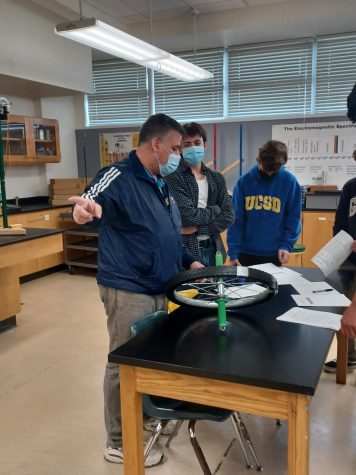
“Students in Physics strengthen their math, data collection, and graphing skills,” Hiller said. “Although we apply Course 1 level mathematics constantly, the concepts we learn are easy to visualize because they are from our everyday experience.”
Similarly, Rivera states that mathematics may also pose a challenge for students taking Chemistry and that a good foundation in basic algebra and arithmetic skills will be helpful for the course. Rivera believes that sophomore year is a “perfect” time for students to take Chemistry because by then, students have progressed enough to have a good math foundation for chemistry.
Garbo mentions his own challenge with the course was staying attentive because of the amount of content covered. However, he was able to receive support from his teacher, Rivera, and ask questions about the concepts he did not comprehend. In Garcia’s experience with physics, they explained an obstacle for them was that if they were confused, there was not much time to ask for help because of how fast-paced the class was.
“Hiller’s class is a bit more free-range where [a student] needs to figure it out [themselves but they get] a lot of the time [to do so]. Whereas, from what I’ve heard from Mr. Rivera there is less of that; he explains what to do and then you do it. It really depends[s] on what that student desires,” Garcia said.
Additionally, Rivera mentions that even though chemistry is a difficult course it can help students problem solve and think outside the box. In Rivera’s experience, Chemistry can help students develop a sense of resilience and perseverance. Garbo reflects that a skill that he has developed in chemistry is problem-solving and problem analysis.
Hiller adds that Physics is a useful class for students interested in pursuing a career in engineering. He mentions that no prior knowledge is needed for students and that the course can be taken as early as sophomore year. For Garcia, the material from the summer assignment sets up students for all the basic knowledge needed for the class.
“Mr. Hiller gives a summer assignment and it teaches you all the basics that you need to know [before] walking in[to] the room. You [do not] need prior knowledge,” Garcia said.
Rivera notes that for students interested in pursuing science, especially the medical field, having a strong foundation in chemistry is “super” important. Garbo also recommends taking Chemistry for anyone who is interested in a STEM-related career. However, Rivera points out that the application of chemistry can be found in everyday life, like in baking.
“Chemistry is part of your life. Having an appreciation and even a basic understanding of chemistry really helps you a lot in your life. Understanding pH helps you make a great sourdough bread or a perfectly browned pretzel,” Rivera said. “ I try to stress to students that [chemistry] is beyond the academic world. Chemistry is just your life in action.”
Garbo recommends Chemistry to students because of the hands-on labs and concepts that can be “super rewarding” to understand even though there may be a barrier to overcome at first. Garcia recommends Physics for students who enjoy math. Ultimately, both students advise their peers to choose the course that seems more interesting to them as it will make the experience much easier.
“Just pick the [class] that seems more interesting to you. Overall, they’re both relatively difficult classes, especially for sophomores,” Garcia said. “If you’re taking a difficult class that you’re not interested in, you’re going to hate your life. But, if you at least have that interest, it’s going to be worth it in the end.”

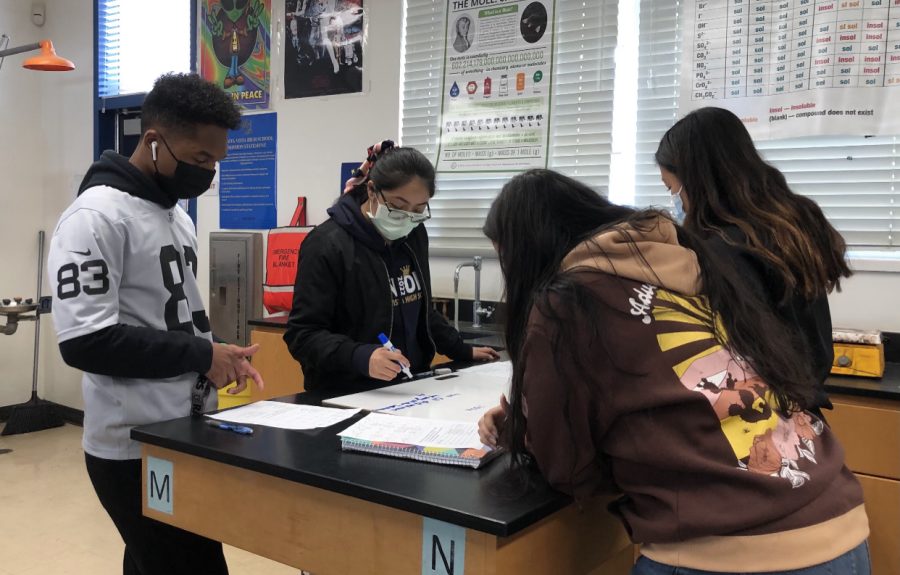
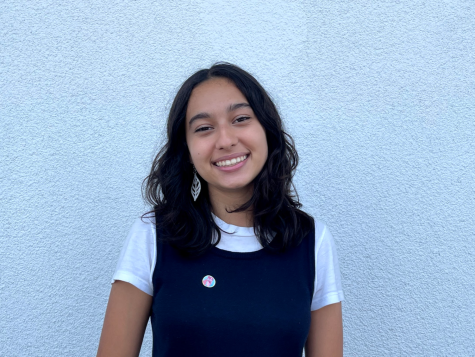
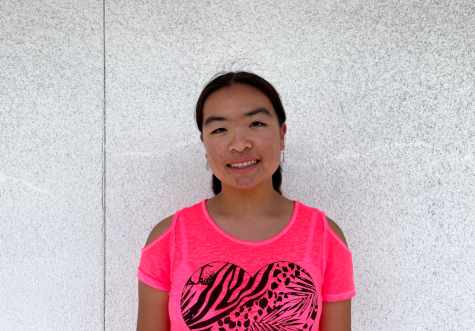
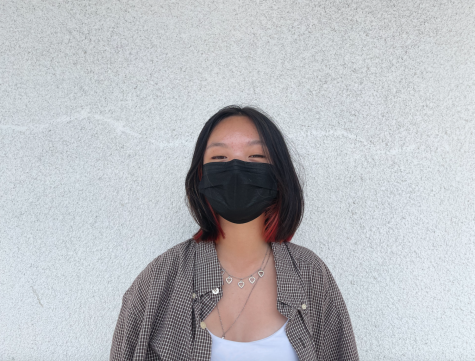
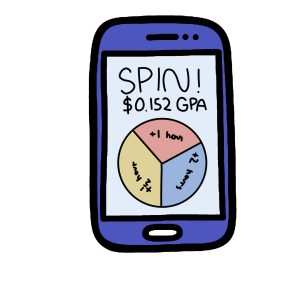


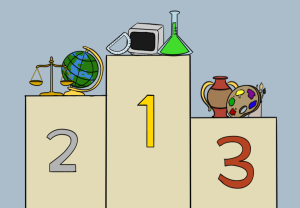
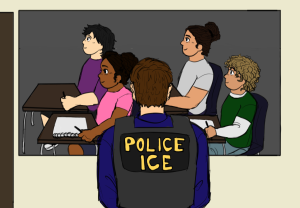
Eric Helle • Mar 1, 2022 at 9:50 am
Ms. Macgaffey,
I enjoyed your feature on the physical science classes available to students and why students might choose one over the other.
I wonder if you could have quantified the “many” who ponder chemistry vs. physics vs biology vs no science in a poll to get a sense of the significance of your topic. Is there a particular grade level where this decision becomes important? It might have been interesting to hear from counselors–what kind of conversations do they have with students over this choice? what are the common hesitations or reservations. Recent alumni might have been an interesting voice, too. If they could counsel their younger selves, what science would they have signed up for or what science are they grateful for taking.
I also like the photos that accompanied your story, but I wondered why the students in the photo aren’t identified and if the students quoted in the story are the same as those in the photos. If yes, great job getting candid photos of your subjects. If not, why weren’t the students in the photo interviewed or quoted?
Hope you cover more stories like this in the future. I really like how each teacher spoke about the realities of the course.